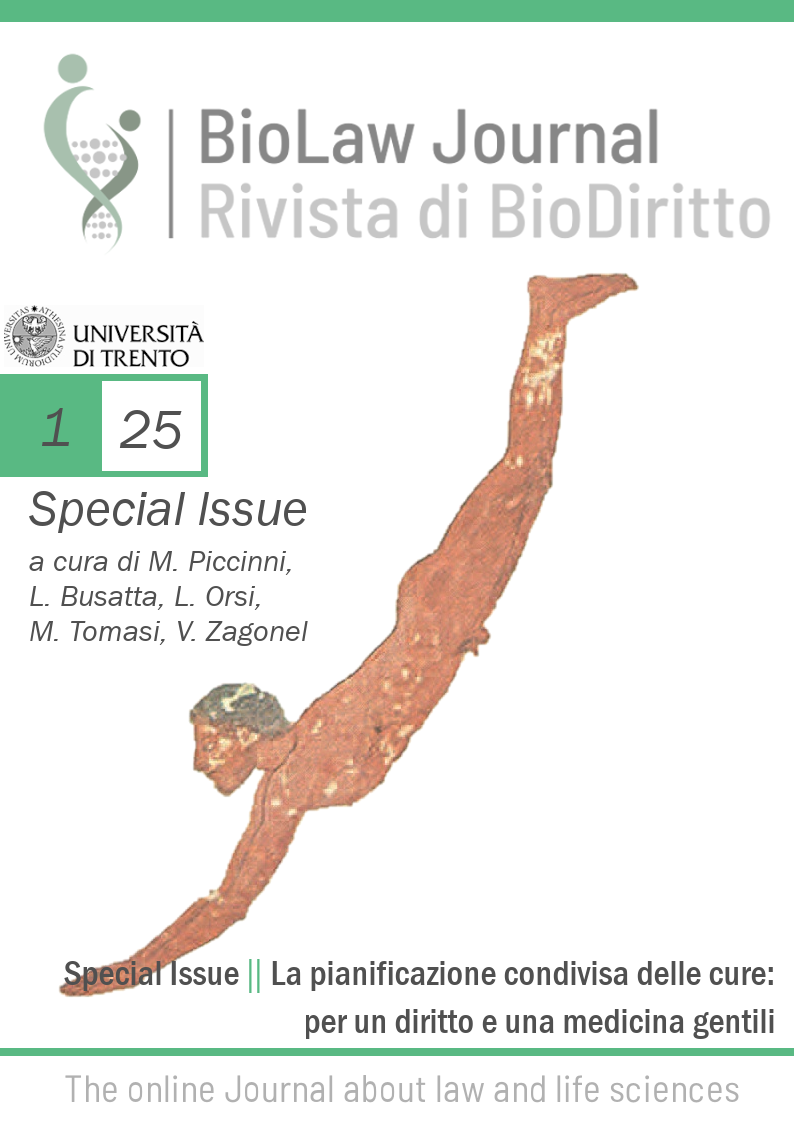The challenging planning
DOI:
https://doi.org/10.15168/2284-4503-3401Keywords:
Advance care planning, shared care planning, law 219/2017, challenging planning, reluctance, effective communicationAbstract
The Shared Care Planning (PCC) is one of the three pillars expressly provided for in Law 219/2017 to enable the persons to manage their personal history even when they have to go through a course of illness and treatment. Actually, CPP is the best – if not the only – way to make the person's care effective as it allows the care pathway to be customised, adapting it to the person's actual situation, needs and life project.
This approach sometimes proves difficult when faced with the evidence that a PCC process is not always easily proposed and manageable: beyond the appropriateness of the ways and times in which it is proposed, it is sometimes accepted by the sick person with fear or with anguish, without any enthusiasm, and the PCC is therefore postponed or even rejected.
To discuss this situation, the text starts with some stories of care experienced and witnessed by the authors. This is followed by an analysis of the most significant literature on this issue.
At the end some practical indications will be shared on how to promote PCC also in problematic situations.
Downloads
Published
How to Cite
Issue
Section
License

This work is licensed under a Creative Commons Attribution-NonCommercial-NoDerivatives 4.0 International License.





